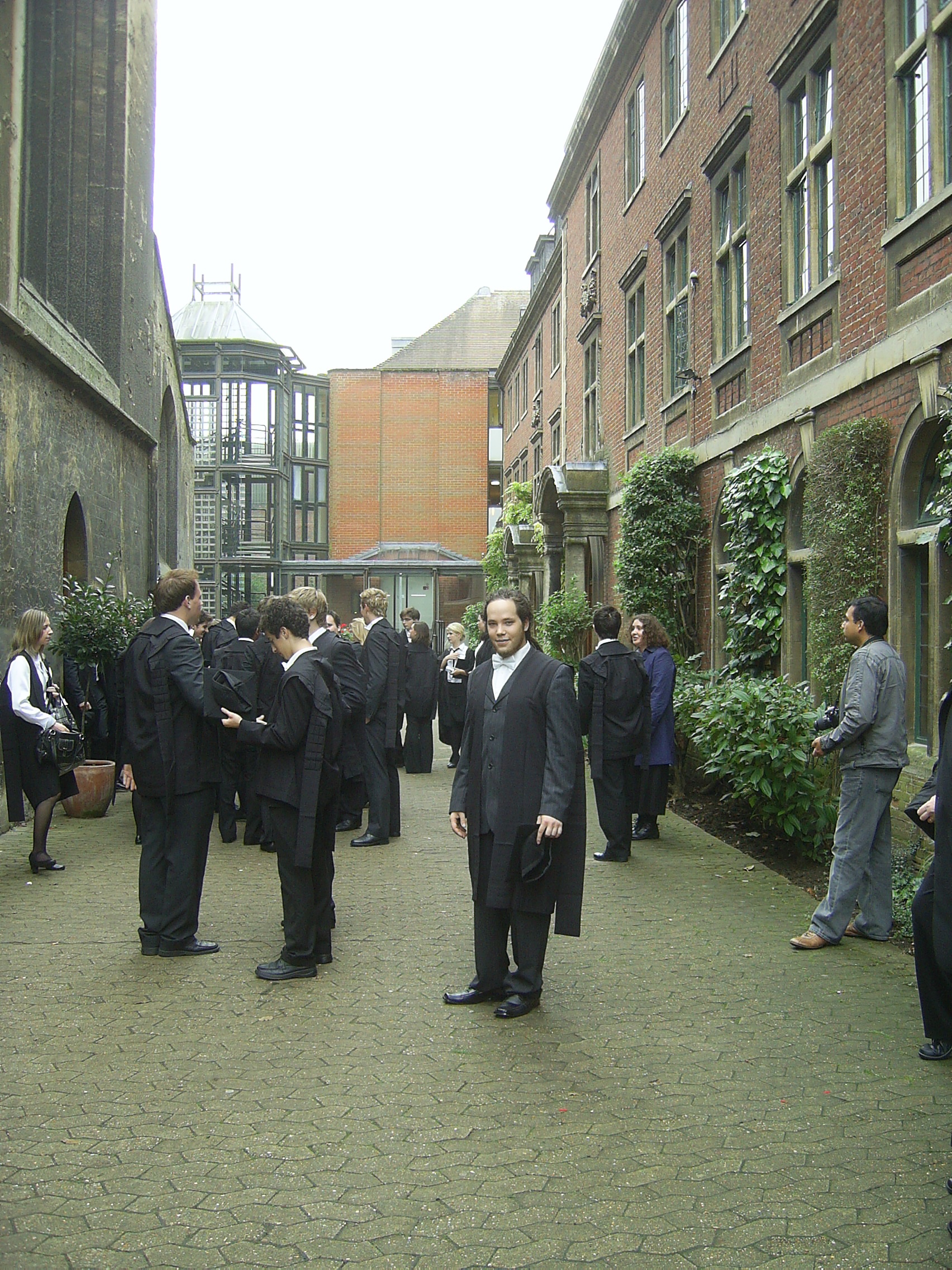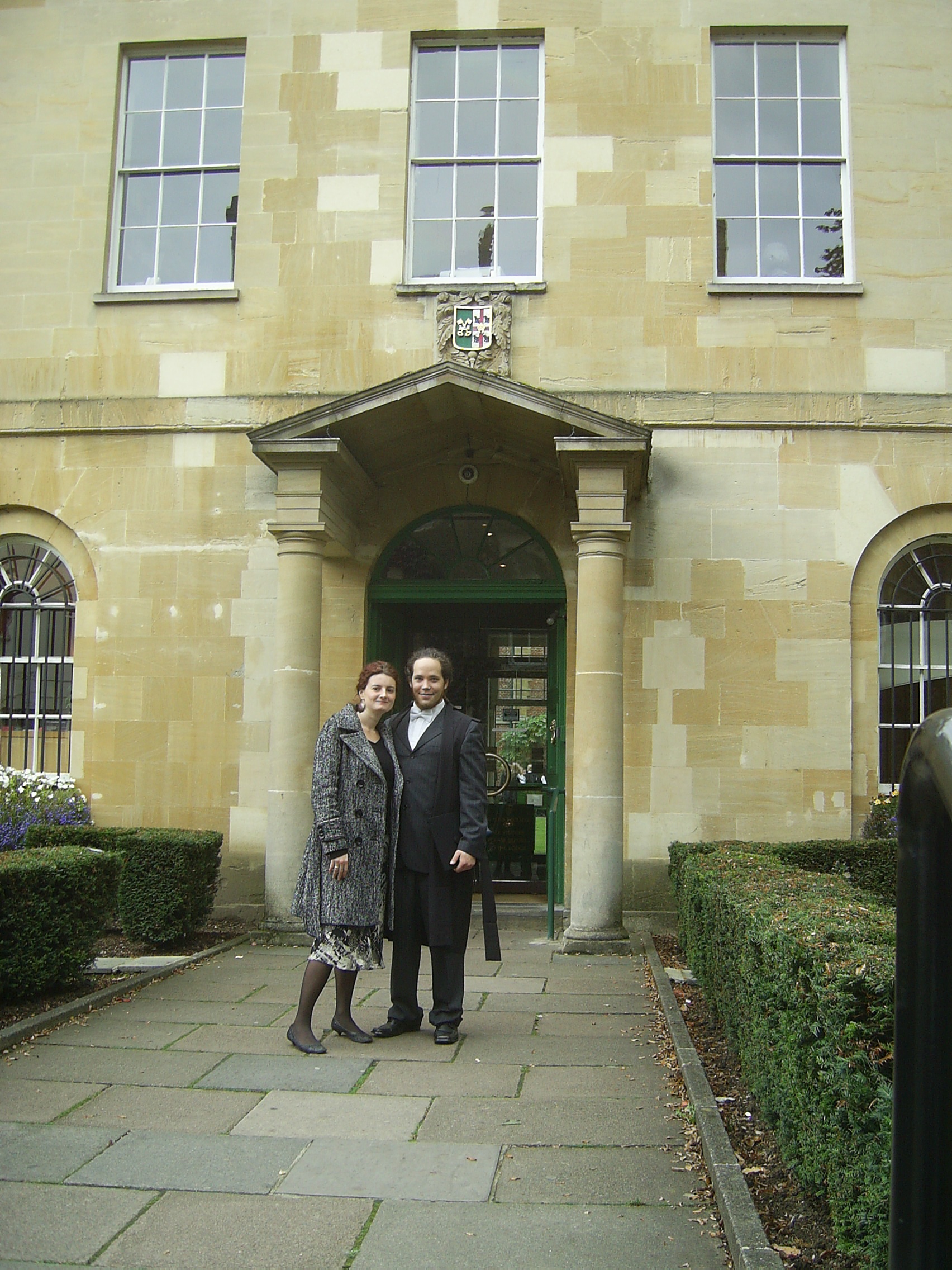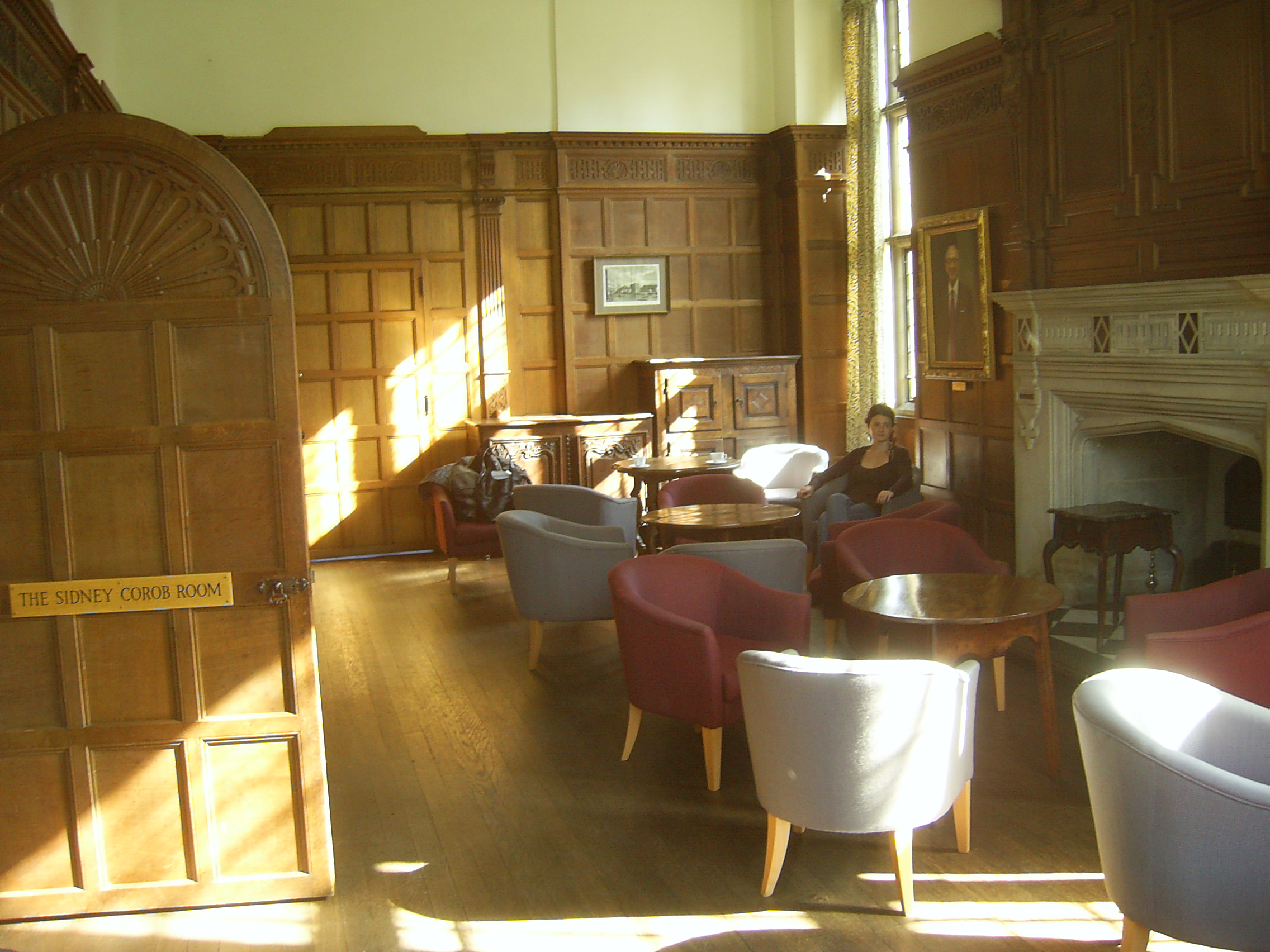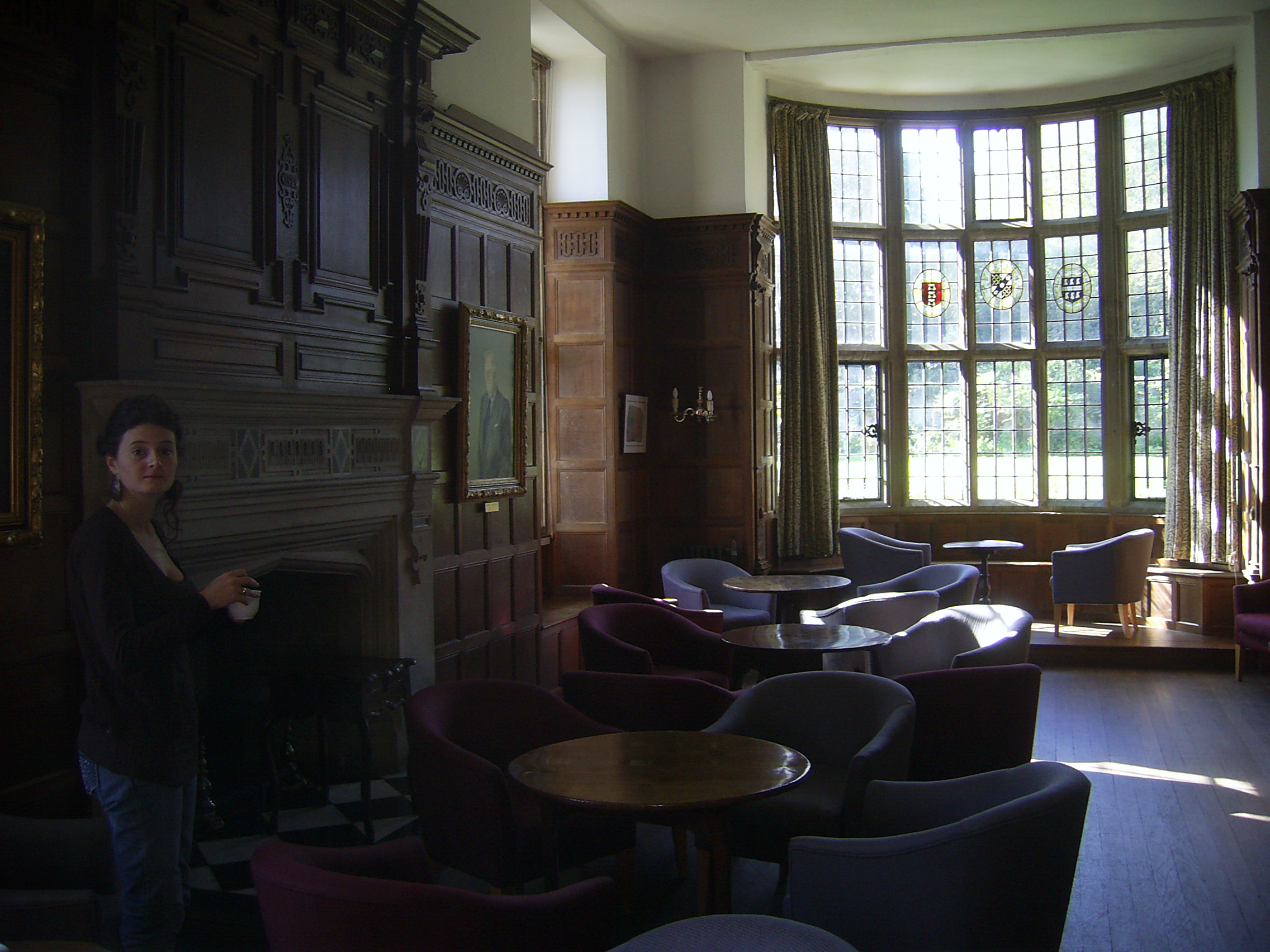(kon)tradí(k)ció
Vicces dolog az angoloknál (ez nyilván hatványozottan igaz itt, Oxfordban) az abszurditásba hajló hagyománytisztelet, most ennek néhány pontját vázolom fel.1, Az egész egyetemen mindenhol van internet, az OCHJS egész területe be van WiFi-zve, de gondolom ez nem egyedülálló (pl. az Oxford-London buszjáraton is van WiFi). Ennek ellenére az ügyintézés papíron is folyik, ennek megfelelően mostanra kb. 30 borítékot halmoztam fel, amik telis-teli vannak mindenféle hasznosabbnál hasznosabb információval. Az OCHJS és az Oriental Institute között napi háromszor van postaszolgálat hivatali ügyekben. A diákok levél-utánpótlását az ún "pigeon hole" (postagalambdúc, "magyarul" fakk) biztosítja, ami alapesetben az áldozat college-ában van, a porta mellett. Namármost nekem ezen kívül még az OCHJS-ben is van ilyenem, tehát duplán kapom az áldást. Jön is bőven.
2, Az egyetemi rangot és hovatartozást a gown (talár) testesíti meg. A szabása, kiegészítői és a színe árulkodnak viselője akadémiai fokozatáról és az általa gyakorolt tudományágról. Akit érdekel, megnézheti, milyen talárokat árul Oxford egyik legnagyobb múltú szabósága (http://www.varsityshop.co.uk/acatalog/Academic_Regalia.html). Ha ez még nem lenne elég, ott van a "habarcsdeszka" (mortar board) is, így nevezik a hozzá való sipkát. Szombaton volt a beavatósdi, amikoris a többi magamfajta szerencsétlennel együtt elvonultunk a college-ainktól a Sheldonian Theatre-ig, ahol szívélyesen köszöntöttek minket...latinul.(kép a matriculation-ről a Sheldonianben: http://en.wikipedia.org/wiki/Image:Oxford_Matriculation_2003.jpg)
Itt vagyok én a college kápolnája előtt, teljes harci díszben. A sötét(kék)/fekete öltöny-cipő-fehér csokornyakkendő szettet nevezik subfusc-nak (a latin subfuscus 'sötétbarna' szóból, bár a barna öltöny viselése kifejezetten tiltott).

Itt vagyunk a Dorcival a college-om előtt. Ő nem olyan cuki, mint én, de azért igyekezett..

3, Azért vannak dolgok, amik már nem úgy mennek mint a régi szép (birodalmi) időkben. Nem lehet például rágyújtani az épületekben, se az egyetemi közös szobákban (Common Room, ilyenből általában három is van egy college-ban: JCR - MCR - SCR, azaz junior, middle, senior az under- sima- és postgraduate-eknek). Ami a legrosszab, hogy gyakorlatilag egy szórakozóhelyen nem lehet rágyújtani egy sör mellé (kivéve kerthelyiséges vagy kisebb és barátságosabb pubokban), mert bent ugye nem lehet, de azt sem engedik, hogy kividd az itókádat.
Itt a yarntoni Common Room, ez arra jó, hogy van tea, kávé, vagy 5 angol és néhány héber, illetve jiddis lap, meg szünetekben emberek is.

Másik fele. (nem hiszem el hogy még digitális géppel se tudok összehozni egy normális fotót)

Na,egyébként sok különös nem történt velünk, a Dorci jár nyelvsuliba, talált munkát egy közeli pubban, én meg tanulok ezerrel, ezért is nemálltam neki újabb bejegyzésnek eddig (nem mintha holnapra már nem kellene elolvasnom 4 cikket, de sebaj). Vettünk bicókat, mivel így nem kell a kisbuszra várnunk, ha be akarunk menni Oxfordba. Ez jó is lenne, de már most sikerült úgy megfáznom, hogy az ágyból is alig bírtam felkelni. Ma lett volna egy tutorial-em (ez Oxford egyik különlegessége, face-to-face órák egy tanárral, megspékelve ugyebár az előzőleg feladott esszéfeladat lehetőség szerint kész állapotának elemzésével), de amikor bementem, a tanár rögtön látta, hogy nem vagyok túl jól, és adott egy másik időpontot. Ugyanez az eset nálunk "egyéni szoc. probléma" címszó alatt futna, ha jól emlékszem.
Ami egész hihetetlen itt az a millió lehetőség, amit ki lehetne használni, ha valahogy képes lennék duplikálni (legalább) magamat (na még csak az hiányozna, szegény Dorci így is alig győz rendet rakni utánam meg főzni rám:). Íme egy kis ízelítő az előadássorozatokból, amikre eddig eljutottam, vagy legalábbis el akartam jutni: hétfőn Ószövetség, utána Putin in Perspective, kedden Vermes Géza szervezésében holt-tengeri tekercsek (erre nem tudok járni, sajna), szerdán szeminárium Yarntonban (az előző előadó az a fickó volt, aki elsőként talált újabb holt-tengeri dokumentunokat az 1947-65 közötti nagy felfedezések után, 1987-ben), csütörtökön MuJewz (muszlim-zsidó vallásközi beszélgetőkör), pénteken modern európai zsidó történelem, majd közel-keleti krízis (az előadó egy ex-fatahos libanoni közíró volt, aki megjárta a jordán és az összes libanoni polgárháborút).
Na most megintcsak megígérem, hogy gyakrabban írok, meglássuk mi lesz belőle:)
Itt egy bónusz kép is.Nem tudom hogy sikerült, hogy minden el van mosódva, csak a lényeg nem, de ilyet biztos nem látni otthon.

4 megjegyzés:
Na, üdvözlöm ezt az átköltözős ötletet, micsoda tech-freak vagy hallod!
Reagálva az előző kommentedre - hm, micsoda furcsa publikus kommunikáció ez - elsősorban jobbulást, másodsorban örülök ha majd hallunk a tanulmányaidról, harmadsorban pedig valahogy a szépen fésült rasztáddal meg a hosszú mellényeddel (jóllátom?) úgy tűntél hirtelen, mint egy Frankenstein a jelmezbálon, no de csak csipkelődök, szeretnék én is ilyen menő cuccokban nyomulni az egyetemen.
MegaCsá :)
na hát nagyon eredeti leszek és ténleg jobbulást misikém, és ténleg ügen csinosan és irigylésreméltóan festesz ebben az ánglis gúnyában. figyu! most nem azé, de ha már ott vagy, kéne egy kicsit tanulnod is, vagy legalább olvasnod néha :P puszi dorcinak, dóritól is.
Bálint voltam amúgy, majd legközelebb intézkedem a nevem ügyében :>
Drága barátaim!
Fulladjatok bele a hányásotokba, hogy van pofátok egy szerencsétlen beteg felebarátotokból csúfot űzni nyilvánosan. A Karex jön ezzel a képtelen Frankenstein-szöveggel, mintha bizony nem látná, hogy úgy áll rajtam az a talár mintha rám öntötték volna (nem MELLÉNY az, te üsző!). A Bálint meg álnéven noszogat hogy tanuljak... Hát most komolyan, ezt vártam tőletek:) Na px mindenkinek, van új bejegyzés, élvezkedjetek azon, majd hétvégén még írok, megyünk Churchill nagypapájának a kastélyába, ahol az Öreg is született. "No sports!" takecare
Megjegyzés küldése